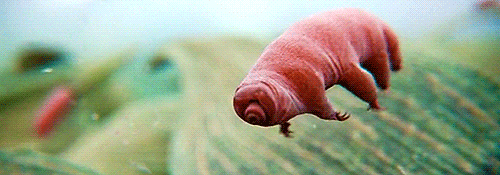The Great Goose
Gold Member
- Sep 26, 2015
- 13,952
- 1,237
- 290

If you go into outer space without protection, you'll die.
The lack of pressure would force the air in your lungs to rush out. Gases dissolved in your body fluids would expand, pushing the skin apart and forcing it to inflate like a balloon. Your eardrums and capillaries would rupture, and your blood would start to bubble and boil. Even if you survived all that, ionising radiation would rip apart the DNA in your cells. Mercifully, you would be unconscious in 15 seconds.
How do these seemingly insignificant creatures survive in such extreme conditions?
But one group of animals can survive this: tiny creatures called tardigrades about 1mm long. In 2007, thousands of tardigrades were attached to a satellite and blasted into space. After the satellite had returned to Earth, scientists examined them and found that many of them had survived. Some of the females had even laid eggs in space, and the newly-hatched young were healthy.
Tardigrades return from the dead

